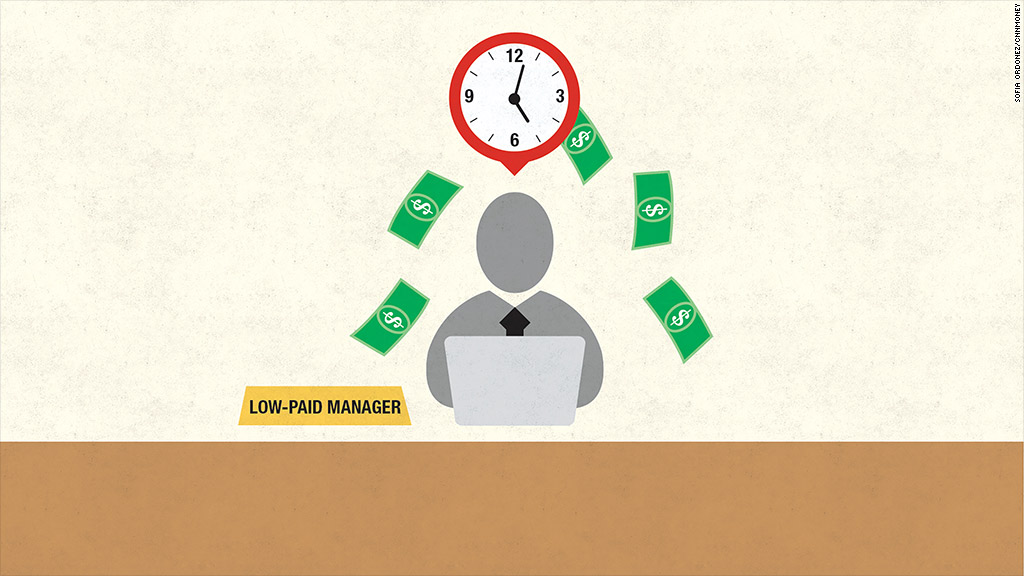
These days, a lot of companies expect their employees to regularly work more than 40 hours a week. But here's a radical suggestion: Just stop.
One CEO believes that working excessively long hours is not only unnecessary if everyone manages their time and energy well, it won't help the company's bottom line either.
Jason Fried, founder of project management software maker Basecamp, practices what he preaches, rarely logging more than 8-hour days himself and directing his executives and other employees to do the same. His company, with about 50 employees, just celebrated its 17th anniversary.
Now Fried is asking other employers to sign a "Work Can Wait" pledge. Those who do promise to "respect ... employees' nights, weekends and vacations. Stay mindful at work and limit your hours and those of your employees to 40 per week. Model the way for your team."
The quid pro quo for the employer? "You can create permanent, beneficial change at your company: productivity, creativity, and loyalty will all be up, and talented people will want to work with you."
Related: The death of the 40-hour work week
One of the companies that has signed on to Fried's pledge is DragonSearch. The digital marketing firm decided a year ago to stop counting employees' hours per week but rather let employees manage when they log their 160 hours per month.
That gives them the flexibility to work more or less than 40 hours in a given week depending on what makes sense for their work projects and their personal lives. But in any case they're not expected to put in more than those 160 hours.
After about six months of the policy being in place, COO Etela Ivkovic noticed employees were coming up with more innovative ideas than they had before and were more willing to tackle projects. Ivkovic thinks that's directly correlated to the company's new work-hours policy.
"People feel more balanced. You don't worry that you missed dinner last night [with your family] or that you haven't seen your friends in a month. People feel better overall," she said.
Related: These companies offer paid vacation ... and pay for your vacation
Ivkovic said that clients' concerns are always addressed, both on weekly calls and on emails. If those emails come in after-hours, "[clients] know we'll be available the next morning to fix it and make it right. So there isn't any need for them to freak out," she said.
In the rare case when a request can't wait until morning, an employee can shift his hours to a late night or weekend to address it.
Both she and Fried noted that this shift in workplace culture can take time. While there has to be buy-in from leaders, the rank-and-file need to be mindful when they're impinging on their colleagues' personal time too.
And none of this works unless everyone is smart about how they work. That means minimizing interruptions and altering expectations that everyone should respond immediately to your questions and requests.
"Just because someone asks you for something doesn't mean you stop everything," Fried said. When he sends a request to employees, he expects they'll get back to him when they're available.
Unless, of course, something is truly urgent. But, he noted, few things truly are.
"Forty hours a week is plenty if you don't waste your time. You need to protect people's time and attention."
